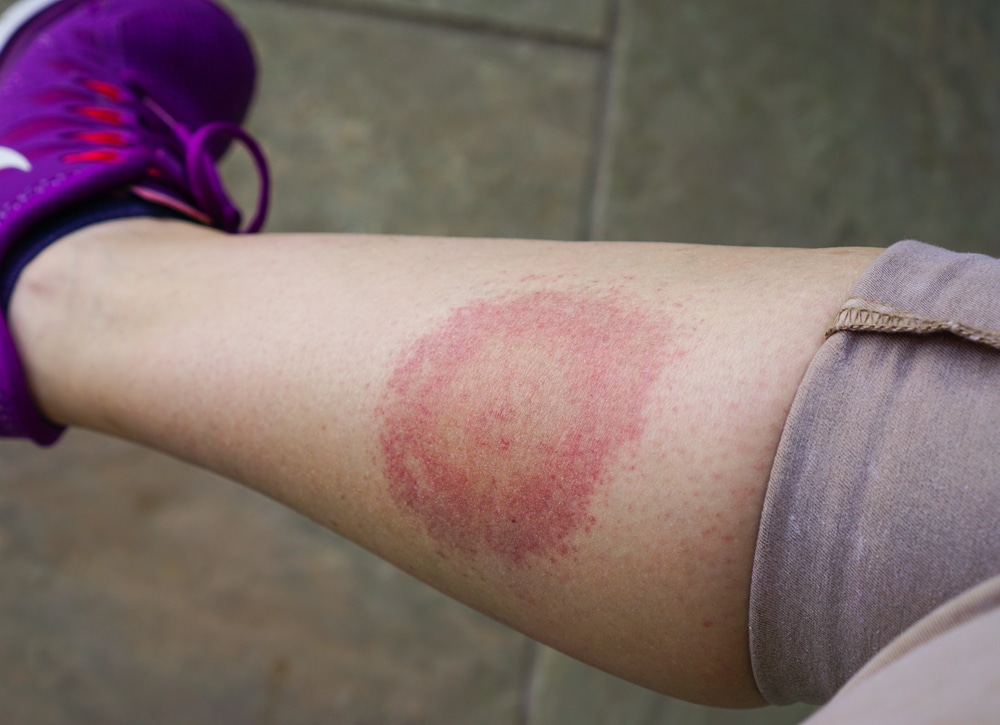Did you know that Lyme disease is the most prevalent tick-borne illness in the United States? This condition has various stages and can manifest with a wide range of symptoms, from extreme fatigue to joint stiffness. While some cases can be complex, multiple treatments can be used to help people who have contracted Lyme disease.
At Knox Wellness in Knoxville, TN, we specialize in an integrative approach to wellness, including the treatment of Lyme disease. We offer a comprehensive list of treatments under one roof, allowing us to provide natural solutions to a multitude of health concerns. With Lyme disease becoming an increasingly significant health issue, it’s crucial to know your options for both prevention and treatment.
What Is Lyme Disease?
Lyme disease is an ailment usually transmitted through the bite of ticks carrying the Borrelia bacteria. Rather than being a one-off illness, it can have a wide range of symptoms that can grow more complex if not treated right away. The presentation of Lyme disease varies from person to person, making it a particularly complex condition to diagnose and manage.
The History of Lyme Disease
The history of Lyme disease dates back to the early 1970s in Lyme, Connecticut, where the illness was first identified. A cluster of children and adults in the area were suffering from mysterious symptoms, primarily arthritis-like conditions, which puzzled medical experts. It wasn’t until a few years later that Dr. Willy Burgdorfer discovered the bacterium responsible for the disease, subsequently named Borrelia burgdorferi in his honor.
The condition was dubbed “Lyme” after the Connecticut town where the first significant cluster of cases was studied. Prior to this, the symptoms were often misdiagnosed as juvenile arthritis or other conditions, owing to a lack of understanding of the disease’s distinct characteristics.
What Causes Lyme Disease?
The main culprit behind Lyme disease is the bacterium Borrelia burgdorferi. This spiral-shaped microorganism infiltrates the human body and can wreak havoc if not diagnosed and treated promptly. While antibiotics like doxycycline are often employed to combat this bacterium, early diagnosis is key for effective treatment.
The primary vectors are ticks, particularly the black-legged tick, also known as the deer tick. These ticks acquire the bacterium by feeding on infected animals like deer, mice, and birds and can subsequently transmit it to humans through a tick bite.
Signs and Symptoms of Lyme Disease
Early symptoms of Lyme disease typically emerge within three to 30 days following a tick bite. Individuals may experience fatigue, fever, headaches, and muscle or joint aches. These initial signs can be easily mistaken for flu or other viral infections, which often leads to delayed diagnosis.
One of the hallmark indicators of Lyme disease is erythema migrans, commonly known as the Lyme disease rash. This rash starts as a small red area near the tick bite and gradually expands, often forming a pattern that looks like a bull’s-eye. Not everyone with Lyme disease will develop this rash, but it serves as a critical diagnostic clue when it does appear.
As the disease progresses, late symptoms may manifest, including neurological issues such as facial palsy, meningitis, and cognitive difficulties. Some individuals may also experience heart problems, like irregular heartbeat. Muscular and joint pains can become more severe over time as well.
Lyme disease can also present non-specific symptoms such as dizziness, disrupted sleep, and mental fog, which frequently get attributed to other conditions. Understanding the full spectrum of symptoms of Lyme disease is vital for timely diagnosis and treatment.
Diagnosis of Lyme Disease
Diagnosing Lyme disease involves evaluating Lyme disease symptoms and taking a medical history. Initial assessment often hinges on the presence of the characteristic bull’s-eye rash and other clinical signs. Laboratory tests, such as the ELISA and Western Blot, provide additional diagnostic insight. A combination of these factors typically informs a Lyme disease test outcome, as no single test is definitive.
Treatment Options for Lyme
Oral Medications
The first line of defense in Lyme disease treatments usually involves oral antibiotics. These are most effective when administered in the early stages of the disease. Doxycycline and amoxicillin are commonly prescribed for this purpose.
IV Antibiotics
For more advanced or persistent cases of Lyme disease, intravenous antibiotics might be necessary. This method is often considered when the disease has advanced to affect the nervous system. It’s crucial to consult with healthcare providers for an individualized treatment plan.
Co-infection Treatments
Lyme disease can often occur alongside other infections, known as co-infections. Additional antibiotics or antiparasitic medications may be necessary to treat these coexisting conditions.
Supportive Therapies
While antibiotics are central to Lyme disease treatment, supportive therapies can be instrumental in managing symptoms and improving quality of life. Diet and exercise can play a role in overall well-being, and other complementary approaches, such as targeted supplements may offer symptom relief.
Prevention of Lyme Disease
- Tick Checks: Regularly checking your body for ticks, especially after outdoor activities, can be the first line of defense in preventing Lyme disease treatment needs. Inspect areas like your armpits, behind the ears, and the groin area where ticks like to hide.
- Repellents: Utilizing EPA-registered insect repellents containing DEET or Picaridin can offer effective protection against tick bites. Make sure to read and follow the label instructions for optimal effectiveness.
- Landscape Management: Keeping your yard clear of tall grass, leaf litter, and shrubbery can reduce tick habitats. This minimizes the likelihood of ticks entering your personal space and thereby lowers the risk of requiring Lyme disease treatment.
Experiencing Symptoms of Lyme Disease? Contact Us Today
Whether you’ve noticed something that looks like a Lyme disease rash or you’re experiencing other symptoms, early intervention and targeted treatments are important. At Knox Wellness in Knoxville, TN, we provide a comprehensive range of services to address a variety of health concerns. Lyme disease can be a complicated condition, but with the right approach, effective treatments are available. Reach out to us online or call us at (865) 801-9501.












